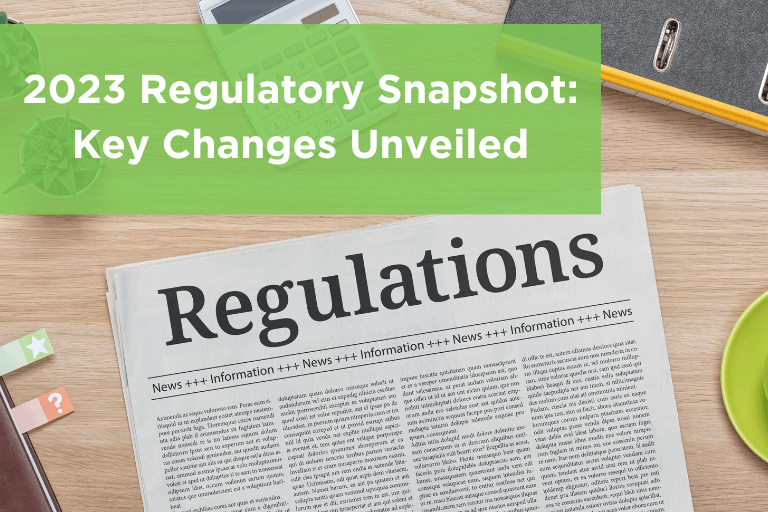The year 2023 introduced a series of significant updates and enhancements for air emissions compliance. From the evolution of ECMPS 2.0, the reinforced Mercury Air Toxics Standards (MATS), to revisions to the Cross-State Air Pollution Rule (CSAPR), we will dive into these intricacies to arm you with the knowledge you need to tackle your air compliance needs in the new year.
ECMPS 2.0 Re-Engineering Project
The Emissions Collection and Monitoring Plan System (ECMPS) 2.0 is a new web-based reporting tool released to replace the original ECMPS desktop tool. The new release will include functionality for additional data types, including QA, certifications, and emissions.
The switch from the current desktop ECMPS software to the new ECMPS 2.0 reporting platform is effective, with the first reported emissions potentially to be submitted for the Q2 2024 emissions submission period.
Due to the nature of the ECMPS 2.0 updates, we’ve adapted our two Data Acquisition Systems, StackVision, and Prism, to embrace the upcoming reporting file format changes. This includes updating our software to allow the generation of quality assurance and certification files, as well as creating JSON-formatted files for use and submission. ECMPS will maintain the current profile checks, and no new checks will be added.
ECMPS for Mercury Air Toxics Standards (MATS)
Starting in January 2024, those units that are using CEMS or Hg traps to demonstrate compliance have new reporting requirements, which will be submitted using the existing ECMPS tool and ultimately, ECMPS 2.0. Examples include:
- Absolute Correlation Audits for PM CEMS
- Compliance report records (semiannual reports now quarterly)
- 30-boiler operating day averages
Low Mass Emissions (LME)
Low Mass Emissions (LME) methodology allows reporting without continuous monitoring of emissions or heat input. Instead, hourly SO2, NOx, and CO2 emissions are estimated using fuel-specific default emission rates. Units must demonstrate their emissions do not exceed:
- 25 tons of SO2 annually
- 100 tons of NOx annually
- 50 tons NOx ozone season
Emissions files are created using operating and fuel data and are generated “by hand” using ECMPS 1.0. Because the new ECMPS 2.0 will not have the functionality to create LME files, our Reporting Engineers offer a service to create error-free JSON files for submittal using operational data with an internal tool.
MATS – Residual Risk & Technology Review (RTR)
The EPA is proposing to amend the National Emission Standards for Hazardous Air Pollutants (NESHAP) for Coal- or Oil-Fired Electric Utility Steam Generating Units (EGSs), also known as Mercury Air Toxics Standards (MATS). This proposal amends the surrogate standard for non-mercury (Hg) metal HAP (filterable particulate matter (fPM)) for existing coal-fired EGUs, the fPM compliance demonstration requirements, the Hg standard for lignite-fired EGUs, and the definition of startup, based on the EPA’s review of the May 2020 RTR of MATS.
Essentially, the goal is to strengthen the MATS rule by proposing these changes:
- fPM standard changes from 0.03 lb/MMBtu to 0.01 lb/MMBtu
- PM CEMS – no testing or CPMS
- Hg standard for lignite changes from 4.0 lb/Tbtu to 1.2 lb/Tbtu
- Removal of startup definition #2
- Compliance deadlines – 3 years and 180 days
- No changes to Work Practice Standards
For more information, read the Fact Sheet for the MATS Proposed RTR from the EPA.
Greenhouse Gas Reporting Rule (GHGRR)
Proposals to amend requirements for the Greenhouse Gas Reporting Rule have been filed by the EPA beginning in June 2022, followed by two more proposals in May and August 2023. These proposals will amend requirements that apply to the petroleum and natural gas systems source category and the Greenhouse Gas Reporting Rule to ensure:
- Reporting is based on empirical data
- Accurately reflects the total methane emissions and waste emissions from applicable facilities
- Allows owners and operators of applicable facilities to submit empirical emissions data that demonstrates the intent to which a charge is owed
The EPA is also proposing changes to requirements that apply to the general provisions, general stationary fuel combustion, and petroleum and natural gas systems source categories. These proposals will improve calculations, monitoring, and reporting of GHG data for petroleum and natural gas system facilities.
Regulatory and Reporting Experts
Feeling overwhelmed? With over 50 years of expertise, we’ve helped thousands of facilities to meet air emissions regulations at all levels. Our Regulatory and Reporting experts are here to aid your facility as you navigate the adjustments that 2024 will bring. From ECMPS 2.0, Low Mass Emitting (LME) reporting and conversions to Quality Assurance/Quality Control Plans (QA/QC) and Monitoring Plans – we’re here to help! Contact us today to learn about how our analysts can assist you.
Looking for more regulatory resources? Check out our other blog posts on The Source that cover Monitoring Plans, ECMPS 2.0 Updates, and more.

Susan Kennedy, QEP - Regulatory & Reporting Manager
Susan joins ESC Spectrum from the Power Industry sector where she spent 25+ years helping power plants and associated facilities comply with environmental laws and regulations. During her tenure at Progress Energy (now Duke Energy Florida) and Gulf Power Company, she supported various environmental programs covering all media. Her technical background includes permitting, compliance and reporting for wastewater, water use, groundwater, remediation, Title V, Title IV, CEMS, Green House Gas, Florida Annual Operating Reports, Air Testing, Reciprocal Internal Combustion Engine (RICE), Risk Management Plans and Toxic Release Inventory. She received both her Bachelor of Science (’92) and Master of Science (’96) degrees from Auburn University.


